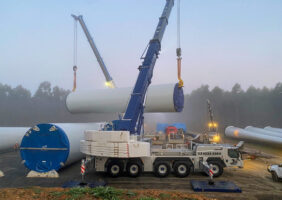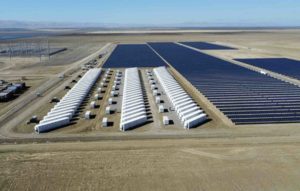Two of the newest members to join the commercial solar club in NSW are two, well, clubs: The Euston Club Resort (on the NSW-Victorian border) has installed a 99kW system on its roof, while the Rules Club Wagga Wagga has installed a 76kW system. The Euston Club’s system is made up of 396 Suntech 250W modules and has an expected output of 140,202kWh per year – enough to power around 20 homes. The Wagga Wagga club’s system comprises 303 Canadian Solar 250W modules and is capable of generating 104,972kWh per year – enough to power about 15 homes.
The combined 175kW gridconnect solar power system was commissioned as part of the Solar in Clubs program through Clubs’ Sustainable Futures and Solar Choice, for the NSW Club industry. The two systems – both installed by Todae Solar – will have a combined expected output of 245,174kWh per year – saving the Clubs around $50,000 annually and cutting carbon emissions by about 305 tonnes a year. The two installations add to the already completed 95kW system installed on Club Sapphire, Merimbula, which was also installed by Todae.
In other news…
In South Australia, a Tanunda-based winery has become home to a 90kW solar PV array, making it the fifth-largest rooftop solar generator in the state. The Barossa Vintners project, which received dollar for dollar funding of $90,206 from AusIndustry through the federal government’s Clean Technology Investment Program, was installed by leading commercial solar integrator, The Solar Project. Barossa Vintners’ manager Keith Ward says the “massive” solar array will cut the winery’s carbon emissions intensity by around 22 per cent and result in annual savings of around $26,000 in energy and maintenance costs. “We see it as a way to do our bit for the environment in terms of harnessing renewable energy, while at the same time significantly reducing our ongoing electricity costs.”
The 317-room Rydges Sydney Airport Hotel is the proud owner of a fully operational 70kWe natural gas-fired Cogeneration System, designed and installed by Simons Green Energy. The cogen system, launched in May, will supply a portion of the hotel’s electricity demands, and use the waste heat to supply hot water for its domestic and kitchen requirements. It will also operate as an emergency backup system in case of grid power failure. Made up of a 70 kilowatt reciprocating gas engine and hot water storage tanks, the unit is expected to cut the hotel’s energy usage (and thus its bills) by 360,000kWh per year, and reduce its carbon emissions by 191 tonnes a year.
The Port Augusta community is calling on Alinta Energy not to abandon plans to develop a solar thermal power plant in the South Australian city, after its application for funding for a feasibility study was knocked back by ARENA. With no government funds forthcoming, Alinta decided last week to shelve its Port August solar plans. But this week, the Repower Port Augusta Alliance has launched a public letter calling on the power company to perservere. “We want (Alinta) to exhaust every possible avenue to progress a solar thermal future for Port Augusta,” said Lisa Lumsden of Repower Port Augusta. “Our community and the region is impacted by what happens to this power station” Lumsden said, “so we want to give the community the opportunity to sign onto our letter.” The group is expecting to gather around 1000 signatures.








